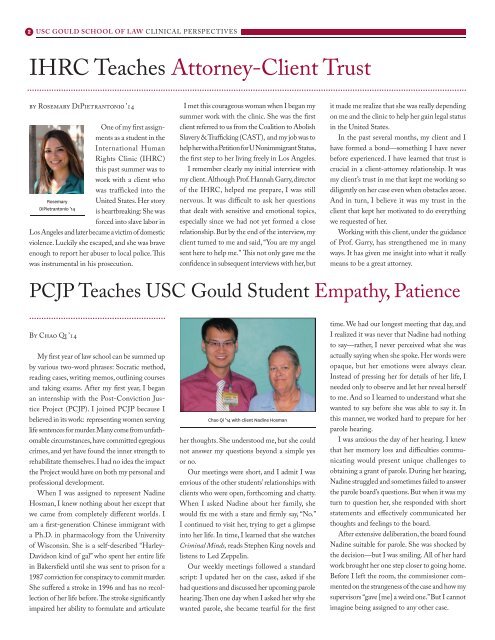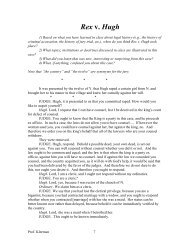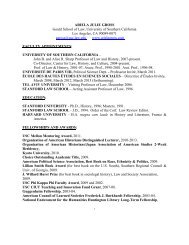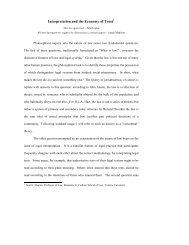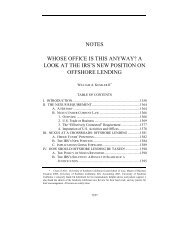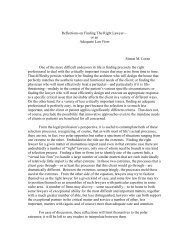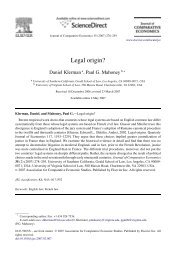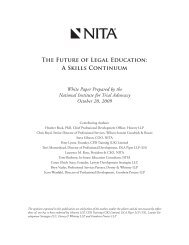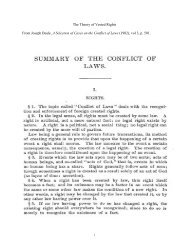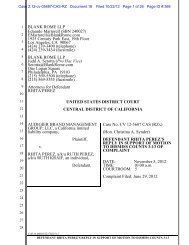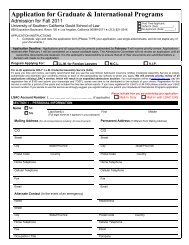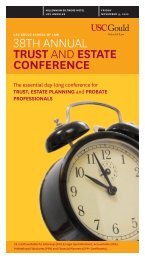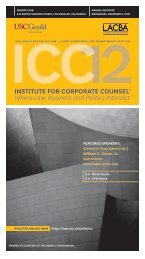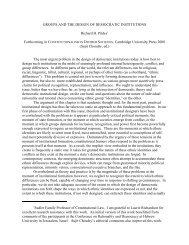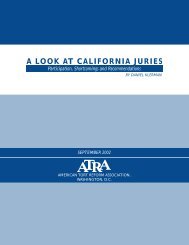CLINICAL PERSPECTIVES News and Current Issues - USC Gould ...
CLINICAL PERSPECTIVES News and Current Issues - USC Gould ...
CLINICAL PERSPECTIVES News and Current Issues - USC Gould ...
You also want an ePaper? Increase the reach of your titles
YUMPU automatically turns print PDFs into web optimized ePapers that Google loves.
2 <strong>USC</strong> GOULD SCHOOL OF LAW <strong>CLINICAL</strong> <strong>PERSPECTIVES</strong><br />
IHRC Teaches Attorney-Client Trust<br />
by Rosemary DiPietrantonio ’14<br />
Rosemary<br />
DiPietrantonio ’14<br />
One of my rst assignments<br />
as a student in the<br />
International Human<br />
Rights Clinic (IHRC)<br />
this past summer was to<br />
work with a client who<br />
was trafficked into the<br />
United States. Her story<br />
is heartbreaking: She was<br />
forced into slave labor in<br />
Los Angeles <strong>and</strong> later became a victim of domestic<br />
violence. Luckily she escaped, <strong>and</strong> she was brave<br />
enough to report her abuser to local police. is<br />
was instrumental in his prosecution.<br />
By Chao Qi ’14<br />
My rst year of law school can be summed up<br />
by various two-word phrases: Socratic method,<br />
reading cases, writing memos, outlining courses<br />
<strong>and</strong> taking exams. After my rst year, I began<br />
an internship with the Post-Conviction Justice<br />
Project (PCJP). I joined PCJP because I<br />
believed in its work: representing women serving<br />
life sentences for murder. Many come from unfathomable<br />
circumstances, have committed egregious<br />
crimes, <strong>and</strong> yet have found the inner strength to<br />
rehabilitate themselves. I had no idea the impact<br />
the Project would have on both my personal <strong>and</strong><br />
professional development.<br />
When I was assigned to represent Nadine<br />
Hosman, I knew nothing about her except that<br />
we came from completely dierent worlds. I<br />
am a rst-generation Chinese immigrant with<br />
a Ph.D. in pharmacology from the University<br />
of Wisconsin. She is a self-described “Harley-<br />
Davidson kind of gal” who spent her entire life<br />
in Bakerseld until she was sent to prison for a<br />
1987 conviction for conspiracy to commit murder.<br />
She suered a stroke in 1996 <strong>and</strong> has no recollection<br />
of her life before. e stroke signicantly<br />
impaired her ability to formulate <strong>and</strong> articulate<br />
I met this courageous woman when I began my<br />
summer work with the clinic. She was the rst<br />
client referred to us from the Coalition to Abolish<br />
Slavery & Tracking (CAST), <strong>and</strong> my job was to<br />
help her with a Petition for U Nonimmigrant Status,<br />
the rst step to her living freely in Los Angeles.<br />
I remember clearly my initial interview with<br />
my client. Although Prof. Hannah Garry, director<br />
of the IHRC, helped me prepare, I was still<br />
nervous. It was dicult to ask her questions<br />
that dealt with sensitive <strong>and</strong> emotional topics,<br />
especially since we had not yet formed a close<br />
relationship. But by the end of the interview, my<br />
client turned to me <strong>and</strong> said, “You are my angel<br />
sent here to help me.” is not only gave me the<br />
condence in subsequent interviews with her, but<br />
her thoughts. She understood me, but she could<br />
not answer my questions beyond a simple yes<br />
or no.<br />
Our meetings were short, <strong>and</strong> I admit I was<br />
envious of the other students’ relationships with<br />
clients who were open, forthcoming <strong>and</strong> chatty.<br />
When I asked Nadine about her family, she<br />
would x me with a stare <strong>and</strong> rmly say, “No.”<br />
I continued to visit her, trying to get a glimpse<br />
into her life. In time, I learned that she watches<br />
Criminal Minds, reads Stephen King novels <strong>and</strong><br />
listens to Led Zeppelin.<br />
Our weekly meetings followed a st<strong>and</strong>ard<br />
script: I updated her on the case, asked if she<br />
had questions <strong>and</strong> discussed her upcoming parole<br />
hearing. en one day when I asked her why she<br />
wanted parole, she became tearful for the rst<br />
it made me realize that she was really depending<br />
on me <strong>and</strong> the clinic to help her gain legal status<br />
in the United States.<br />
In the past several months, my client <strong>and</strong> I<br />
have formed a bond—something I have never<br />
before experienced. I have learned that trust is<br />
crucial in a client-attorney relationship. It was<br />
my client’s trust in me that kept me working so<br />
diligently on her case even when obstacles arose.<br />
And in turn, I believe it was my trust in the<br />
client that kept her motivated to do everything<br />
we requested of her.<br />
Working with this client, under the guidance<br />
of Prof. Garry, has strengthened me in many<br />
ways. It has given me insight into what it really<br />
means to be a great attorney.<br />
PCJP Teaches <strong>USC</strong> <strong>Gould</strong> Student Empathy, Patience<br />
Chao Qi ’14 with client Nadine Hosman<br />
time. We had our longest meeting that day, <strong>and</strong><br />
I realized it was never that Nadine had nothing<br />
to say—rather, I never perceived what she was<br />
actually saying when she spoke. Her words were<br />
opaque, but her emotions were always clear.<br />
Instead of pressing her for details of her life, I<br />
needed only to observe <strong>and</strong> let her reveal herself<br />
to me. And so I learned to underst<strong>and</strong> what she<br />
wanted to say before she was able to say it. In<br />
this manner, we worked hard to prepare for her<br />
parole hearing.<br />
I was anxious the day of her hearing. I knew<br />
that her memory loss <strong>and</strong> diculties communicating<br />
would present unique challenges to<br />
obtaining a grant of parole. During her hearing,<br />
Nadine struggled <strong>and</strong> sometimes failed to answer<br />
the parole board’s questions. But when it was my<br />
turn to question her, she responded with short<br />
statements <strong>and</strong> eectively communicated her<br />
thoughts <strong>and</strong> feelings to the board.<br />
After extensive deliberation, the board found<br />
Nadine suitable for parole. She was shocked by<br />
the decision—but I was smiling. All of her hard<br />
work brought her one step closer to going home.<br />
Before I left the room, the commissioner commented<br />
on the strangeness of the case <strong>and</strong> how my<br />
supervisors “gave [me] a weird one.” But I cannot<br />
imagine being assigned to any other case.


